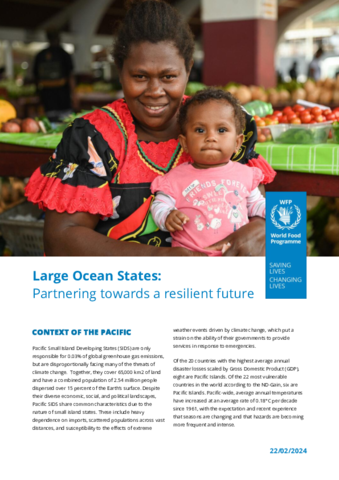
These islands, covering 65,000 km^2 and home to 2.54 million people, face unique challenges due to their geographic dispersion, reliance on imports, and vulnerability to extreme weather. Despite diverse backgrounds, they share common issues like import dependency and the heightened impact of climate changes such as rising sea levels and extreme weather events. Pacific SIDS are among the most affected globally, with many facing severe economic losses relative to GDP and ranking high on vulnerability indexes. Climate change has led to increasing temperatures, changing seasons, and more intense hazards, posing existential threats including displacement and cultural loss. Rising sea levels threaten low-lying areas, affecting homes, livelihoods, and marine ecosystems. Additionally, changing lifestyles have led to health issues, such as high rates of obesity and diabetes. Pacific Island leaders are prioritizing climate adaptation and advocating globally for SIDS, emphasizing their plight through initiatives like the 2050 Strategy for the Blue Pacific Continent. The WFP supports these efforts through its strategic plan, aiding in addressing climate vulnerabilities and resource limitations.
